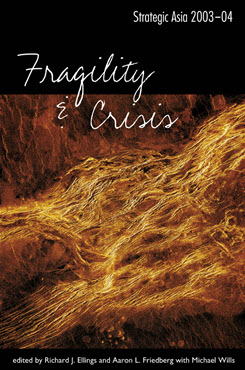Northeast Asia
The Geopolitics of the Korean Nuclear Crisis
U.S. unilateralism in rejecting the Sunshine Policy and North Korean unilateralism in seeking regime survival through nuclear weapons have forced Japan, South Korea, China, and Russia to agree to a multilateral approach to reduce threats to their interests.
U.S. unilateralism in rejecting the Sunshine Policy and North Korean unilateralism in seeking regime survival through nuclear weapons have forced Japan, South Korea, China, and Russia to agree to a multilateral approach to reduce threats to their interests. After making clear to the North its own preferred outcome, each has been in close touch with the United States in the hope that a compromise to the current nuclear crisis can be found. After the inconclusive three-way summit in Beijing in April 2003, Washington succeeded in drawing Tokyo and Seoul closer to its approach, and with close inspections of North Korean ships Tokyo grew more assertive. Anxious to avoid a nuclear Japan as well as greater U.S. dominance in Northeast Asia, China seeks a soft landing for North Korea that gives a boost to regionalism, from which it can gain economically and strategically. Pressed by Beijing, Pyongyang agreed at the start of August to sixparty talks that will test any regional consensus as well as U.S. willingness to return to multilateralism. Tough negotiations lie ahead if a showdown is averted between North Korea and the United States.
Strategic Asia
The Strategic Asia annual edited volume incorporates assessments of economic, political, and military trends and focuses on the strategies that drive policy in the region. Learn more about Strategic Asia.


